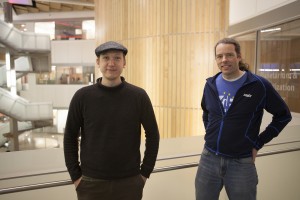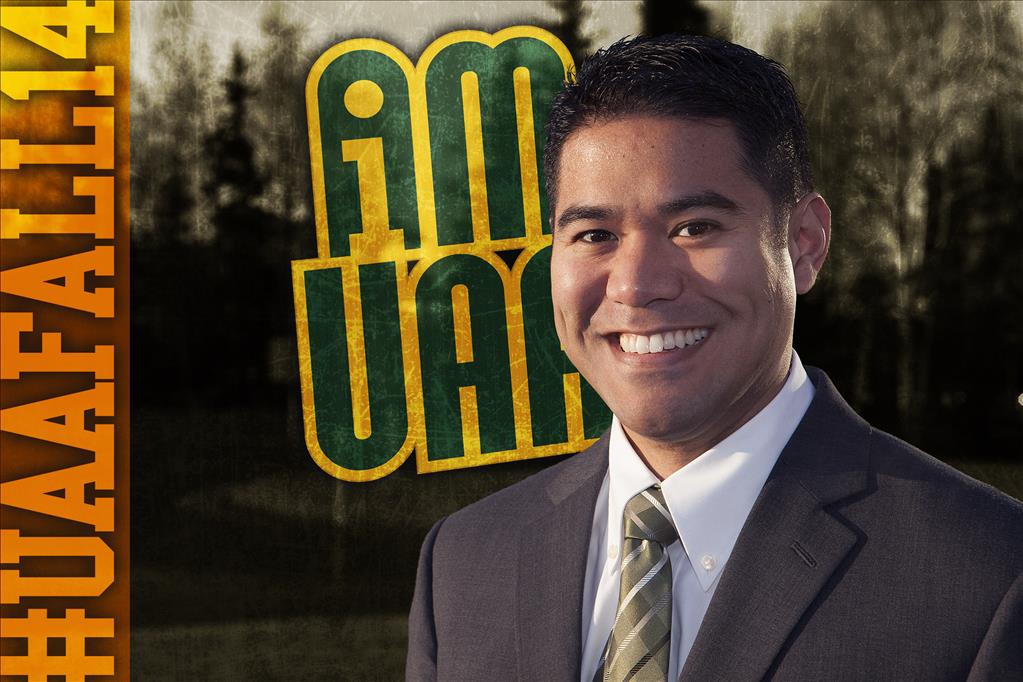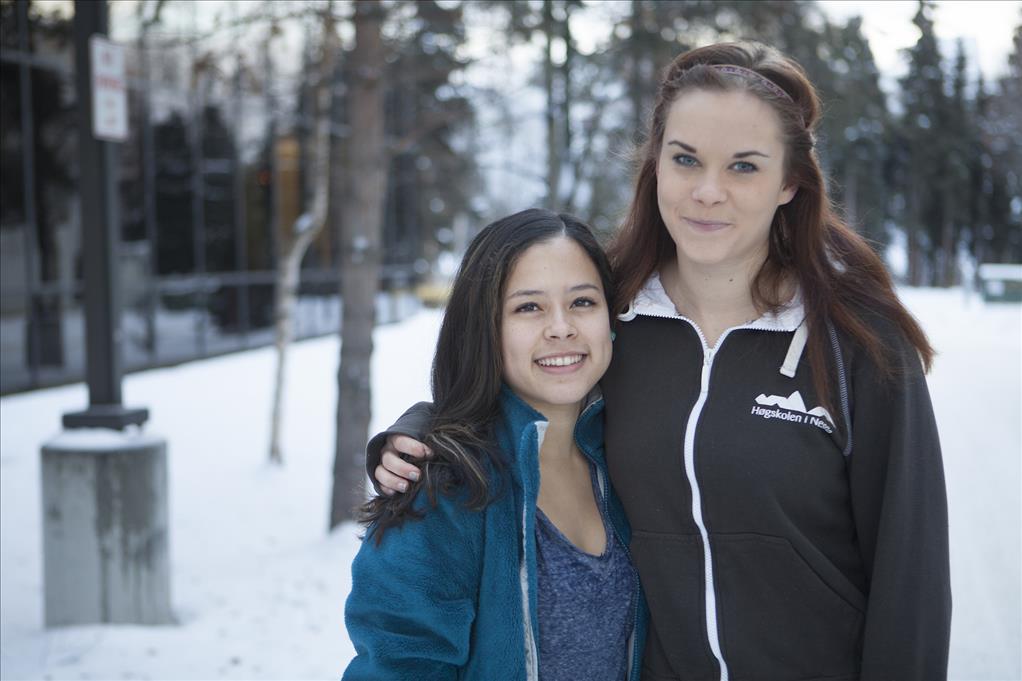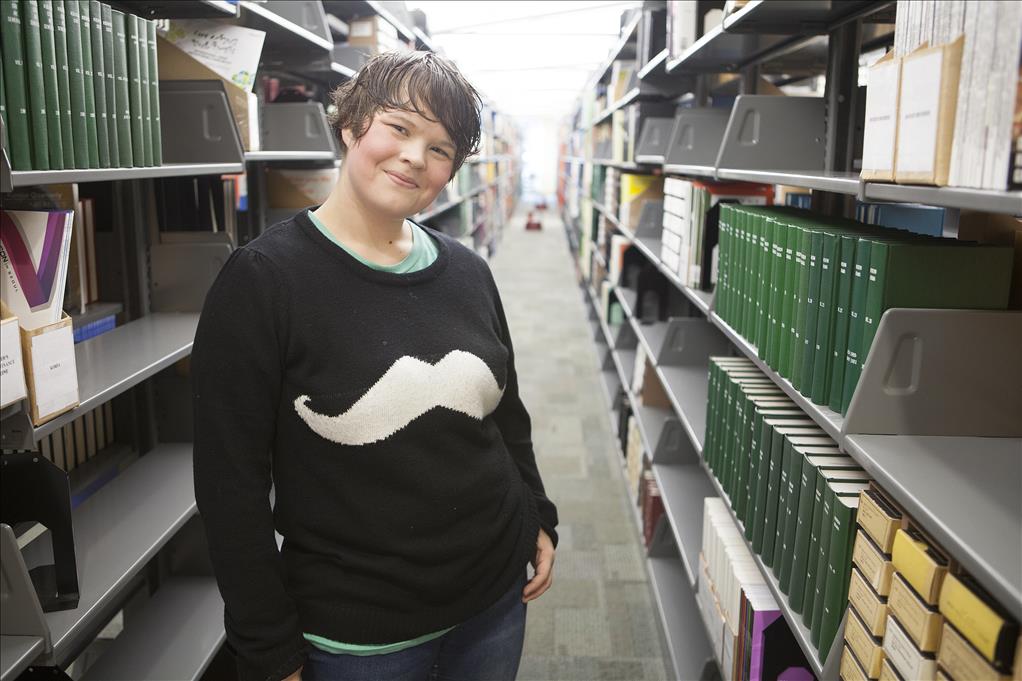Bears take over the planetarium
by Jamie Gonzales |
 You may not be one of the lucky few who get to sit beside the brown bears at McNeil
River State Game Sanctuary during viewing season, but now you can have a mind-bending
bear encounter without the camping gear and bug spray. On Jan. 17, the UAA Planetarium and Visualization Theater will premiere UAA's first original full-dome feature film, River of Bears, shot at the sanctuary.
You may not be one of the lucky few who get to sit beside the brown bears at McNeil
River State Game Sanctuary during viewing season, but now you can have a mind-bending
bear encounter without the camping gear and bug spray. On Jan. 17, the UAA Planetarium and Visualization Theater will premiere UAA's first original full-dome feature film, River of Bears, shot at the sanctuary.
Wait, you thought the planetarium was just for stargazers? Nope. The current lineup features biology, geology and astronomy shows and pairs each one with a resident expert to help further illuminate the film's subject.
"We want to provide a show and then show off the expertise of the university," says Dr. Erin Hicks, director of the planetarium and an associate professor of astronomy.
On Jan. 17, the creative team behind River of Bears, Dr. Travis Rector, professor of astronomy and physics, and filmmaker Jonathan VanBallenberghe, Open Lens Productions, will talk about their experiences traveling to McNeil River to shoot the film and answer all your bear questions following the first two screenings of this 100 percent made-in-Alaska show.
"McNeil has a lottery system and at its peak, the odds are about 1 in 10 for getting in," says Rector. "So there are a lot of people who want to go, but don't get to go. What our planetarium can do is give you an immersive video experience and the sensation of being there."
He got the idea for a full-dome show four years ago when he and his wife won the McNeil lottery and he took his first trip to the sanctuary just as the planetarium was opening.
"You have this place where there are more brown bears than anywhere else in the world and you take Alaska and you take bears and you have two of the most interesting topics that people like to learn about," he says.

River of Bears creative team Jonathan VanBallenberghe and Travis Rector. Philip Hall/University of Alaska Anchorage
When he approached VanBallenberghe about the project, the filmmaker says he had a tough time envisioning what a full-dome wildlife film would look like, but he was game for the challenge.
Alaska-born VanBallenberghe was no stranger to sharing space with wildlife and capturing them on film, having traveled into Denali National Park for his documentary film, In the Company of Moose.
"I had seen brown bears in Denali, but, for me, this was the best wildlife experience I ever had, no hyperbole," he says. "It moved me because when you see that many bears around each other at once-you look out and see 50 bears at once on the rocks catching fish-you see in that context how different they can be from each other."
It's those differences that he highlights in the film. Bears, for instance, have a surprising variety of fishing techniques.
"Different bears have different ways that are very crafty and innovative and intelligent of catching fish. Everyone has seen the picture of a bear catching a salmon in mid-air, snatching it from the waterfalls. But there are so many other styles," he says. "The film will, I hope, expand people's notions of the intelligence of bears."
Rector says they wanted to convey some of the awe they felt on their visits and they also wanted to use the film as a teaching tool.
"One of the missions of the planetarium in general is to educate the public," he says. "We want whatever show it is for people to come and leave thinking, 'Wow, that was really cool. I did not know that.'"
The 62-seat planetarium, adds Hicks, is also booked during the academic year with astronomy classes, physics classes and visits from other science classes who can view shows and use them as a launch point for discussions.
"It's my job to provide the scientific expertise and make sure there's a good connection between what's going on with the planetarium and the goals of the university, making sure those goals are being met," she says.
There are future plans to add mathematics and art shows to their lineup. And, fun tip, save a little room on your calendar to take in the next AudioDome show around St. Patrick's Day where KRUA 88.1 FM DJs will light up the dome for an immersive audiovisual experience.
But if during the course of Alaska's long winter you find yourself missing those slumbering brown bears, remember you can head over to the planetarium and sit yourself down among dozens.
 "Bears take over the planetarium" is licensed under a Creative Commons Attribution-NonCommercial 4.0 International License.
"Bears take over the planetarium" is licensed under a Creative Commons Attribution-NonCommercial 4.0 International License.














